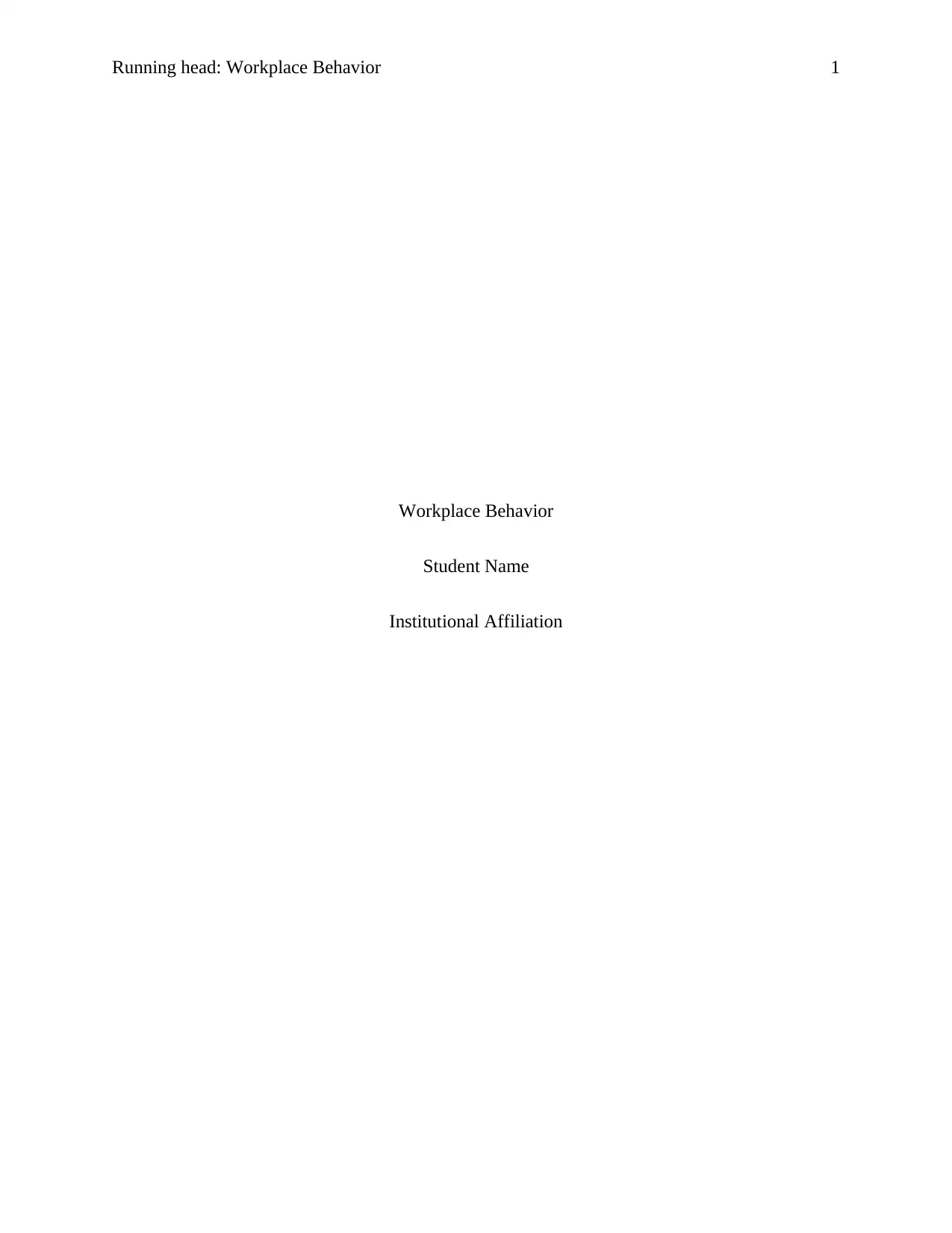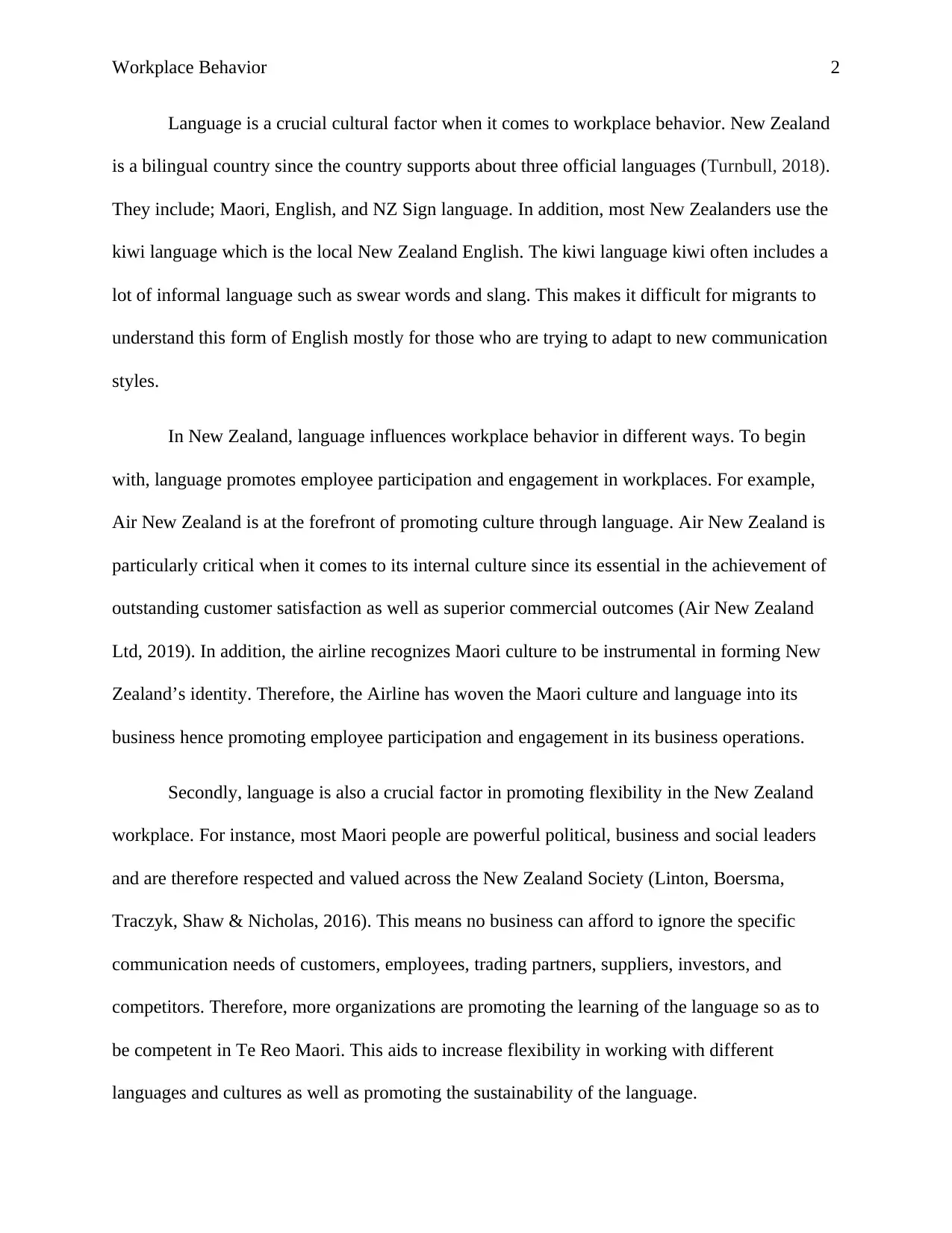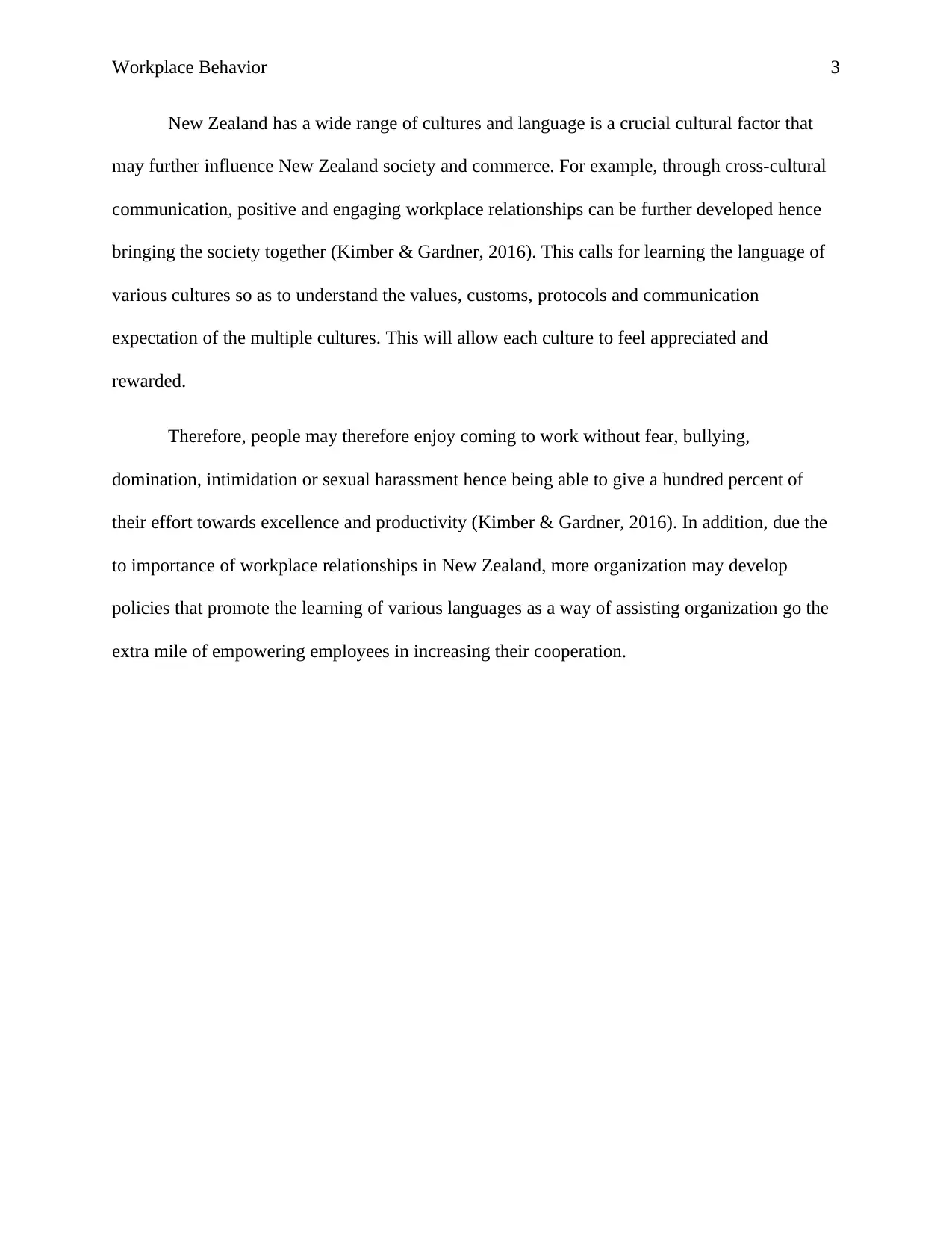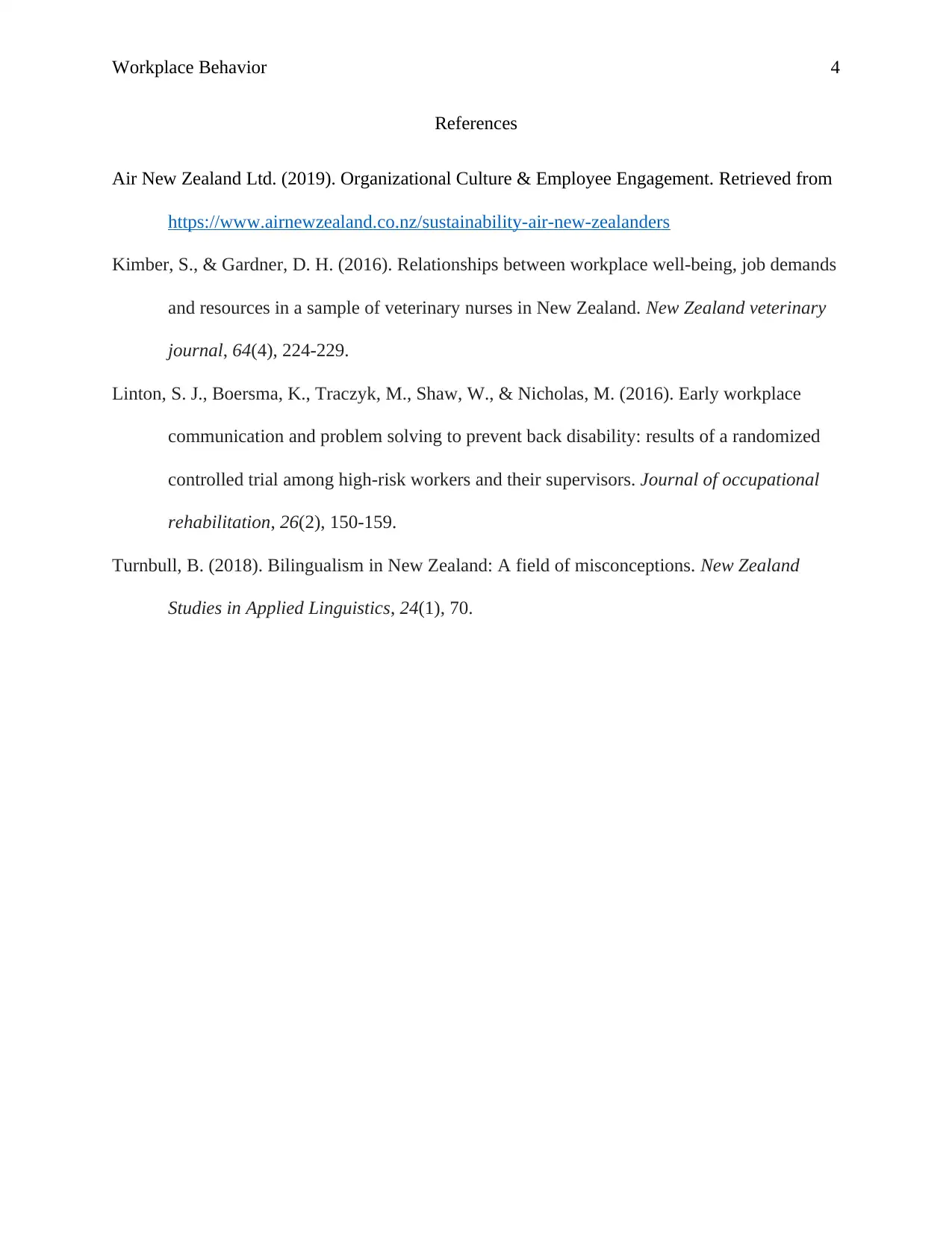Workplace Behavior: Language's Impact in New Zealand
VerifiedAdded on 2023/01/16
|4
|712
|59
Essay
AI Summary
This essay explores the significant impact of language on workplace behavior within the unique cultural context of New Zealand. The essay highlights New Zealand's bilingual nature, focusing on the influence of Maori, English, and NZ Sign Language, as well as the informal Kiwi English. It examines how language affects employee participation and engagement, using Air New Zealand as an example of a company that integrates Maori culture and language into its operations to promote employee involvement and achieve positive outcomes. Furthermore, the essay discusses the importance of language in fostering workplace flexibility and promoting cross-cultural communication, emphasizing the need for organizations to acknowledge and accommodate the diverse communication needs of their stakeholders. The essay concludes by stressing the value of language learning and its role in building positive workplace relationships, encouraging organizations to develop policies that support language acquisition as a means of empowering employees and enhancing cooperation. The paper draws on various research articles to support its claims.
1 out of 4











![[object Object]](/_next/static/media/star-bottom.7253800d.svg)